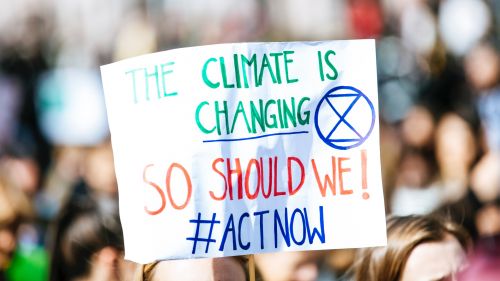Congressional Aggies' Answer to the Climate Crisis

Increasing climate crisis events necessitate bolder government response. The Growing Climate Solutions Act is one Congressional answer that advocates say benefits both farmers and the planet.
As climate change becomes increasingly tangible in the droughts, floods, and extreme weather millions in the US and abroad face, calls to action, especially towards governments, have become increasingly urgent as well. President Biden’s Administration has signaled initial interest in addressing climate change through executive orders, while in Congress, Democrats and Republicans negotiate to attempt to find common ground. Currently, perhaps the most endorsed bipartisan legislative effort is the Growing Climate Solutions Act (GCSA), which looks to connect producers to voluntary credit markets for carbon sequestration and greenhouse gas prevention, reduction, or mitigation. While the bill still provides plenty of fodder for partisan hesitation on both sides, bipartisan sponsors reintroduced the bill in both the House and Senate this legislative session, with significant external support from environmental and farm groups.
What is the GCSA
Originally introduced in the 116th Congress, the Growing Climate Solutions Act was reintroduced by original sponsors Senators Stabenow and Braun, as well as Representatives Bacon and Spanberger. The Senate version (S. 1251) emerged first, with a few tweaks this session emphasizing the markets’ voluntary nature to appease concerns around increased government regulation or mandatory farmer participation. As aforementioned, the GCSA seeks to facilitate access for farmers, ranchers, and foresters to a voluntary environmental credit market that compensates carbon sequestration and greenhouse gas emission prevention, mitigation, or reduction. The bill also seeks to remove barriers to this market by permitting USDA to provide technical assistance surrounding certification for the voluntary environmental credit market. With 48 co-sponsors in the Senate at the time of publication (24 Republicans, 23 Democrats, 1 Independent), the effort is truly bipartisan, winning support of nearly half the Senate. Within the last month, GCSA also passed through the Senate Agriculture Committee, and is now due for a potential floor vote. A number of trade associations, farm groups, and environmental organizations also support the legislation, exerting additional external pressure.
While the Senate has progressed furthest on this bill, the House has a version as well. While Senate support appears widespread, reception in the House has been mixed. Rather than endorsing the GCSA, House Agriculture Committee Ranking Member GT Thompson introduced a slate of GOP bills framed as ‘natural solutions’ to the climate crisis. This slate encompasses five bills that focus on specific practices such as salvage logging, biochar, and soil health, among other provisions. Rep. Thompson said in an interview that he doesn’t believe the technical assistance provided by GCSA is necessary to producers, based on his research. He also reiterated a belief shared by some other members that USDA should not itself establish a carbon bank, but rather promote voluntary private sector efforts.
How the GCSA aligns with executive action
The GCSA stops short of offering direct USDA involvement in a carbon bank, a concept for which the Biden Administration has signaled initial support. During the Biden transition, the Climate 21 Project issued a report led in part by Robert Bonnie, whom President Biden has now nominated as the Under Secretary for Farm Production and Conservation, which advocated for USDA to establish a carbon bank through the Commodity Credit Corporation authority. Additionally, Secretary Tom Vilsack has stated that he is exploring carbon bank options “in-depth,” to ensure anything the agency executes benefits farmers. External coalitions, such as AGree, have released reports that provide additional specificities and options for a potential carbon bank.
Both Congressional and Executive efforts demonstrate an appetite for national policy-level change that benefits both farmers and climate change efforts. While partisan disagreements may remain, the climate discourse is now one to which most policymakers, regardless of party, feel they must contribute. The inescapable effects of the climate crisis are felt by constituents in nearly every district, and policymakers must respond. While the GCSA’s fate is unclear, momentum for federal government-level action on the climate crisis is clearly building.
Stay tuned to our Delivery from the District series to stay up to date on major legislative and executive initiatives.